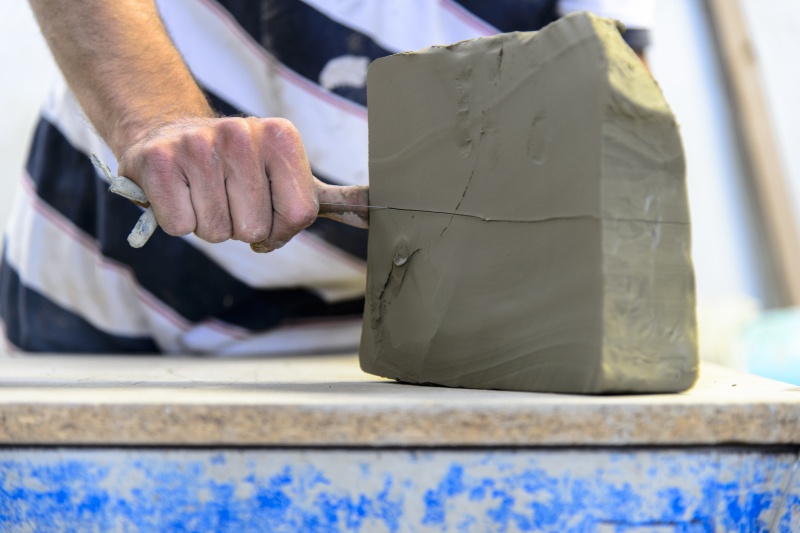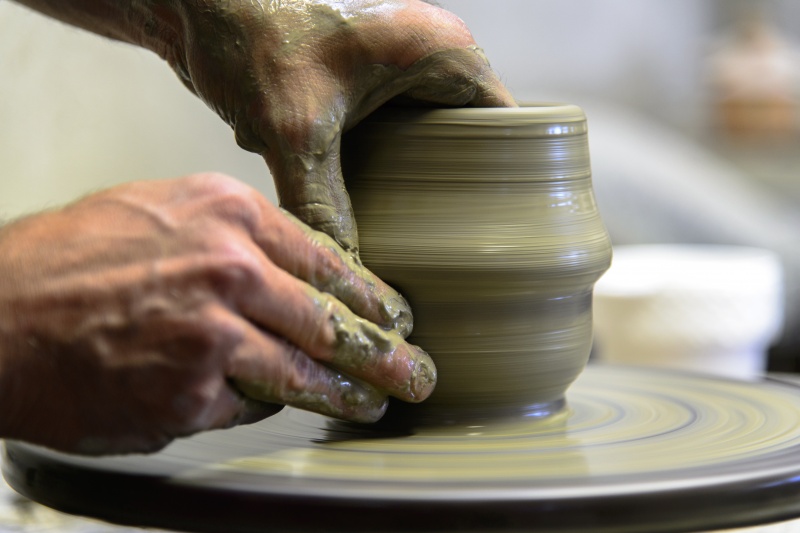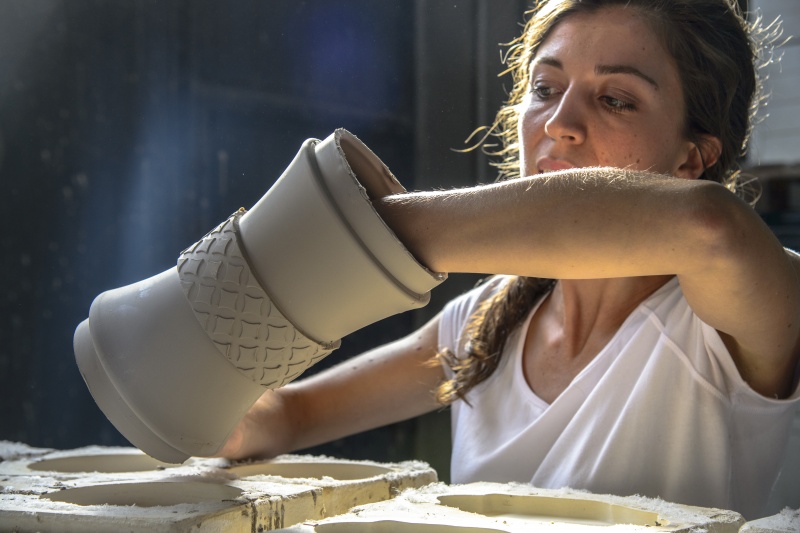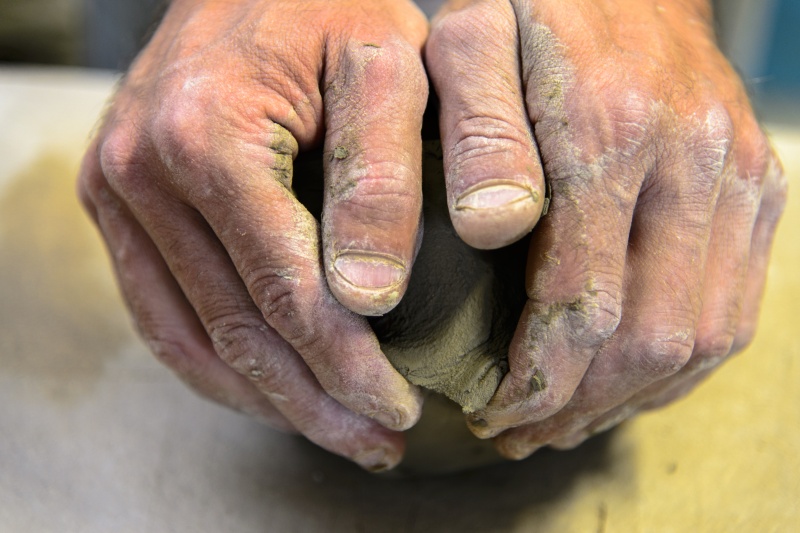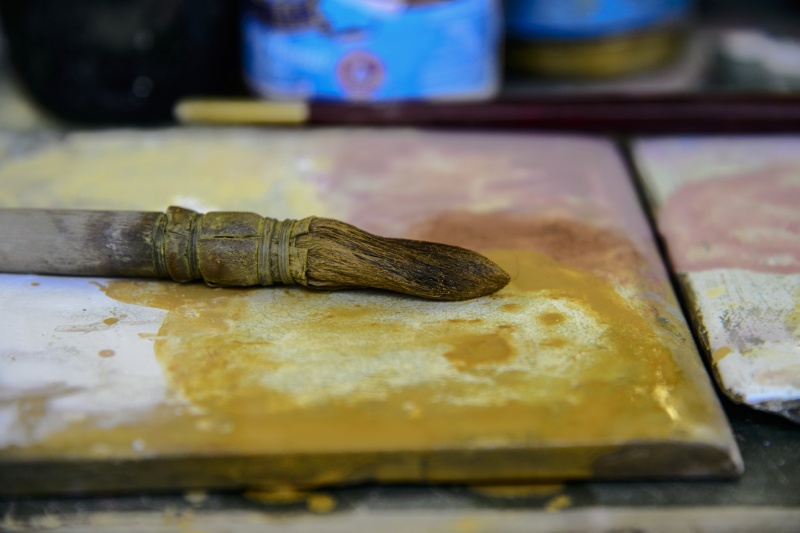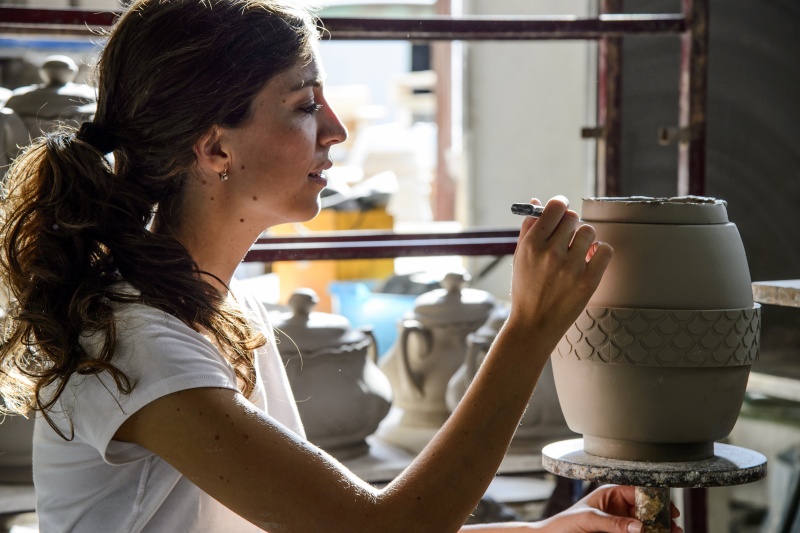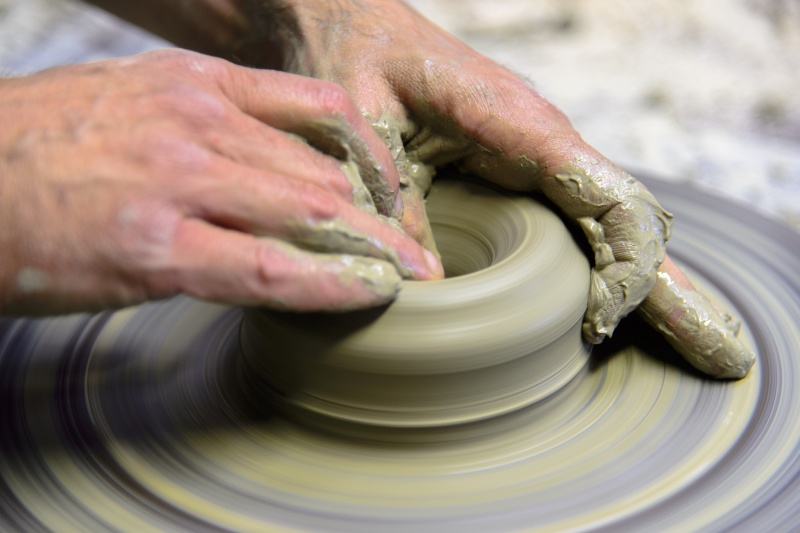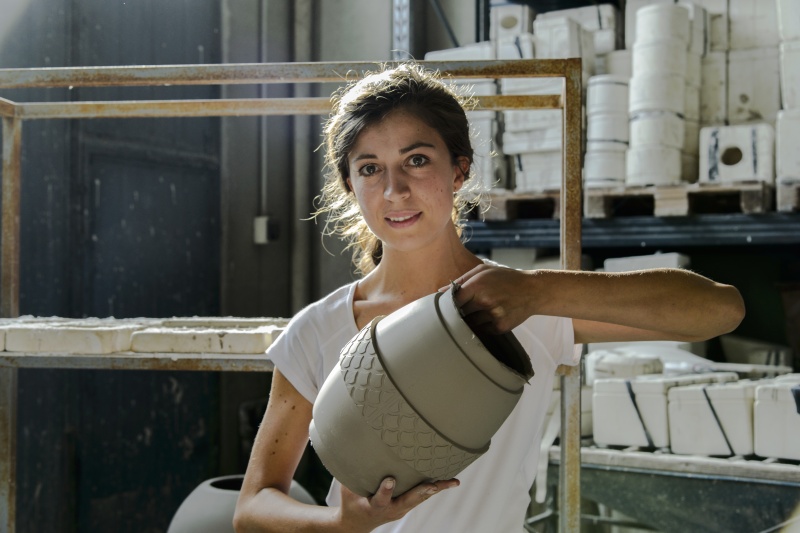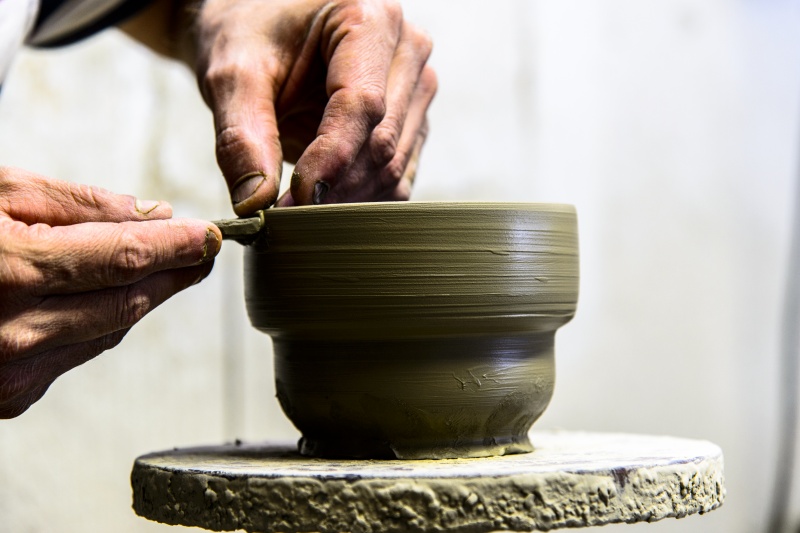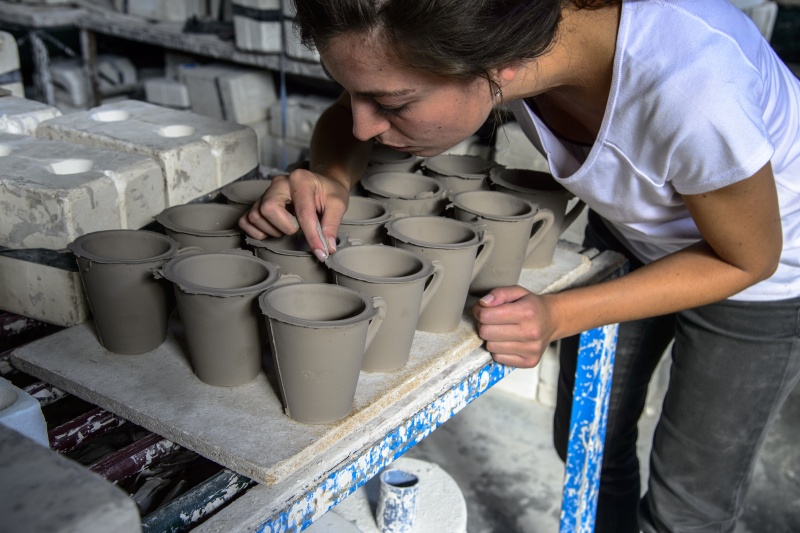A Village of Potters. Everything in the village talks about the ceramic art.
Visiting Deruta means immersing oneself in a centuries-old tradition; the remains of the old pottery kilns (during the Renaissance a good 52 kilns, located in the old town, were actively being used) tell of an extraordinarily well-organized production and a strong stimulus toward innovation. The antique pottery that has been found reveals innovative – sometimes revolutionary – techniques and styles, while maintaining elements of continuity: a sort of “memorial” of the potter, which boldly incorporates originality and modernity. The precious museum collections show the profound artistic awareness and pride of the masters of Deruta majolica.
The artisans of today still have all the technical skill, dignity and pride of their forefathers. Firmly anchored to tradition, they nonetheless are able to seek new goals, inspired by the great works in the Ceramics Museum, the “Art Museum for Majolica Workers,” as it was originally called, with an eye to progress and contemporary tastes.
Shop and home are still the basic, characteristic aspects of life in Deruta, and every ceramic workshop speaks of that “people’s art,” of that talent that has made Deruta famous throughout the world, the fascination of the secret techniques that have been handed down for generations.
“Sitting on the banks of the Tiber, one sees Deruta, a castle full of people, set on the hill above the Tiber... and so finely made are they (these vessels) that as yet there cannot be found any maker in Italy that can equal them, although very often they have experimented and tried to do so.”
Leandro Alberti, first geographer of modern Italy, in a magnificent and famous testimony from 1553.
